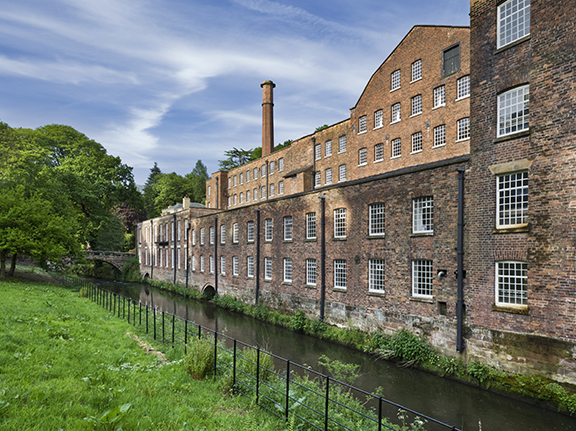- Home
- News
- What’s On
- Activities for Children
- Arts & Crafts
- Autos and Bikes
- Business events
- Car Boot & Auctions
- Charity events
- Churches & Religious
- Comedy
- Dance
- Days out & Local interest
- Education
- Exhibition
- Film
- Gardening & Horticulture
- Health
- Markets & Fairs
- Music
- Nature & Environment
- Spiritual
- Sport
- Talks and Discussions
- Theatre and Drama
- Business
- Local Information
- Jobs
- Deaths
- Charity events
- Contact Us
River Bollin will be brought back to life

Above: Aerial view of the River Bollin at Dunham Massey ⓒ National Trust Images, Chris Lacy
Freshwater wildlife and surrounding habitat will receive a major boost in Cheshire, Cumbria, Somerset, Norfolk, and North Wales as part of an ambitious project led by the National Trust working with the Environment Agency and Natural Resources Wales.
One of the five rivers to benefit from the ‘Riverlands Project’ is the River Bollin which connects a number of National Trust properties on the southern fringe of Manchester including Quarry Bank and Dunham Massey. Riverlands will improve access, wildlife habitats and water quality in the area, focusing on securing sustainable farming practices across National Trust and neighbouring farmland. The project will include tackling non-native species such as the Himalayan Balsam, and will benefit wildlife including brown trout, Atlantic salmon and the endangered white clawed crayfish.

Quarry Bank Mill, the eighteenth century cotton mill established by Samuel Greg which was powered by water drawn from the River Bollin in which valley the mill and Styal Estate prospered, Wilmslow, Cheshire.
Leading the project is Chris Widger who is currently Countryside Manager for a number of National Trust places in Cheshire and the Wirral. Later this month Chris will take up his new position as Riverlands Project Manager to deliver this major initiative across the UK.
Chris says: “The Riverlands Project gives us a unique opportunity to make a real difference to water quality and wildlife. In Cheshire we face very specific issues due to the urban pressures that surround our waterways. Large infrastructure projects, concentrated populations, and land use practice which can pollute our rivers – and we look forward to working in partnership with others to tackle these environmental challenges and to encourage participation by the public. As a major link to the River Mersey, the Bollin catchment is the obvious place for us to focus our attention on in the area to give nature a helping hand.”
Work on the ground will include habitat restoration and creating better paths and walking routes to make waterways more available for a wider range of people. As well as restoring opportunity for nature, the Riverlands project‘s long-term aim is to help communities enjoy their rivers more, not only as a home for wildlife but also as a space for health and wellbeing.
The project was cited by the National Trust’s Director General Ms McGrady’s as a “pledge for nature” at the BBC’s Countryfile Live event at Blenheim Palace this week.
Ms McGrady said: “Rivers are the lifeblood of our landscapes but many of them – and the wider landscapes that feed into them – are in desperate need of repair. The damage inflicted on these environments has threatened a number of freshwater and wetland species with extinction from Britain – we must not allow this to happen.”
Currently, only 14% of England’s river catchments, and 37% of those in Wales, are in good health as intensive farming, pressures from development and the effects of climate change take their toll. The charity will now start reversing this alarming trend across 750 square miles (1204 km²) of land and more than 600 miles of river under its “Riverlands” project.
The Trust will work closely with schools and a wide-range of local community groups to galvanise people who are not currently connected to nature.
Ms McGrady said of Riverlands: “Working together with local communities, the project recognises that when cherished, healthy rivers are important not just environmentally but culturally and socially – they help define places, bring people together and benefit us all.”
Riverlands is part of the Trust’s wider objective to restore 25,000 hectares of wildlife-rich habitats by 2025. More than one in ten of the UK’s wildlife species are threatened with extinction, according to the 2016 State of Nature report.
The Trust hopes Riverlands will eventually deliver many more river catchment projects across Britain and Northern Ireland.
For more information on the Riverlands Project visit: https://www.nationaltrust.org.uk/features/riverlands-how-we-keep-our-rivers-flowing

You must be logged in to post a comment Login